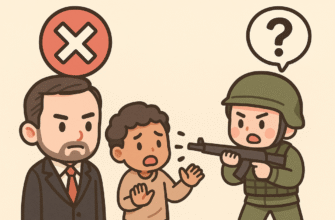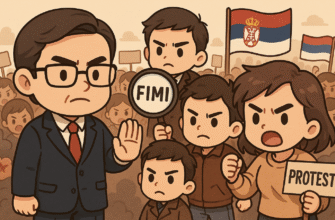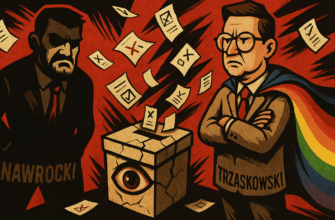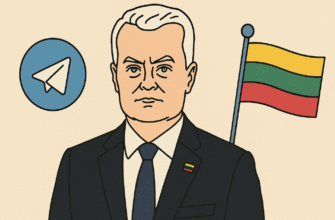On July 16, 2025, a video with the title “NATO is interested in prolonging the conflict in Ukraine to exhaust Russia!” was posted on the CTVBY YouTube channel.
Its content was as follows:
The proposed scheme for supplying American weapons to Kyiv, as reported by Politico newspaper, citing authoritative sources, caused, to put it mildly, bewilderment and confusion among the leadership of NATO member countries. At the same time, the North Atlantic Alliance is interested in maximally prolonging the conflict in Ukraine to exhaust Russia. Such an opinion was expressed today by the Russian Ministry of Foreign Affairs. They also stated that they have a negative attitude toward the new scheme of arms supplies to Kyiv and emphasized that this is yet another proof that NATO is not really interested in peace.
Verdict: Mostly Incorrect
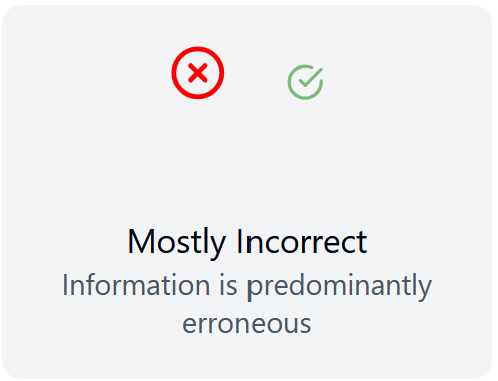
Reasons:
- If several claims were made, most of them are false.
- Minor aspects may be correct or unsubstantiated, but they do not affect the incorrect main thesis.
- The claim may contradict a true fact or event, but still remains clearly false.
Full video:
Now let’s perform an analysis for FIMI/DIMI signs and conduct fact-checking of the statements:
The presented text demonstrates clear signs of information manipulation (FIMI/DIMI), and many key claims require careful verification.
FIMI/DIMI Analysis
- Emotionally charged headline and creating an enemy image
- The headline “NATO is interested in prolonging the conflict … to exhaust Russia!” creates an image of NATO as an aggressor, which amplifies antagonism and emotional reaction typical of DIMI/FIMI.
- A conspiratorial narrative is used: NATO is supposedly guided not by defending allies, but by strategic benefit from Russia’s defeat through exhaustion.
- Presenting the Foreign Ministry’s opinion as “authoritative fact”
- The statement “Such an opinion was expressed today by the Russian Ministry of Foreign Affairs” is presented as indisputable truth. However, this is an official position of one side, not supported by independent confirmations.
- Attribution of motives (“interested in prolonging”)
- The claim about NATO’s interest in escalating conflicts relates to manipulation: attributing strategic goals without evidence.
- Lack of context
- There is no discussion of real reasons for weapons delivery: such as deterring aggression or supporting Ukraine’s defense capabilities.
Fact-checking
Claim: the scheme of American weapons supplies to Kyiv caused bewilderment among NATO.
Verification:
Indeed, media outlets (for example, Politico) reported confusion among European allies after the announcement about transferring Patriots through NATO, as the details of the deal were not fully clarified. European officials expressed “bewilderment and confusion”
Statement: “NATO is interested in maximally prolonging the conflict”.
This statement is an official position of the Russian Foreign Ministry, published by RF-controlled media. But there is no confirmation from NATO, American, or European official representatives. NATO actually states its goal as supporting Ukraine’s defense, not promoting escalation.
Analysis of NATO motives, available in open sources, focuses on ensuring Ukraine’s defense, not exhausting Russia. For example: ‘We’re not buying it’: Trump ties Ukraine aid to America First
FIMI/DIMI: The headline and text contain elements of emotional pressure, polarization, conspiracy theories, attributing aggressive motives without evidence.
Factual accuracy:
- The concerns that arose among NATO representatives regarding the supply scheme are confirmed.
- But the claim about intentionally prolonging the war to “exhaust Russia” is not confirmed by any independent source and is a form of propaganda.
Recommendation for readers
The proposed formulation is manipulative and unreliable. The headline uses an emotional technique that attributes meaning to “NATO’s actions” based on an unproven strategic motive. Readers are recommended to trust confirmed statements from official NATO representatives and avoid one-sided interpretations of foreign policy strategies, which often include vivid rhetorical statements as part of information warfare.
Similar and authoritative sources



